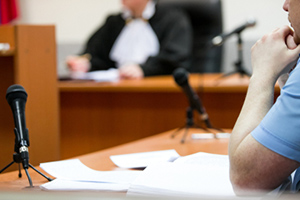Laying a Solid Foundation for Testimony and Evidentiary Admissibility Through Authentication

The importance of laying a solid foundation for testimony and the admissibility of evidence ensures that only reliable and trustworthy information is presented before the court. In this article, we explore the significance of establishing a foundation for evidence and testimony, focusing on the relevant sections of both the Federal Rules of Evidence and the California Evidence Code.
The Federal Rules of EvidenceIn the United States, federal courts operate under the Federal Rules of Evidence (FRE). These rules provide the framework for presenting evidence in federal cases, emphasizing the need for a foundation to ensure the evidence's reliability and relevance. One of the most commonly cited sections pertaining to foundation in the FRE is Rule 901.
Rule 901 outlines the requirements for authenticating or identifying evidence. Simply put, before any piece of evidence is admitted, it must be authenticated, ensuring that it is what it purports to be. This foundational requirement applies to various forms of evidence, from documents and photographs to tangible objects and electronic data.
For example, in a criminal case involving federal wire fraud, the prosecution seeks to introduce bank account statements of the defendant that establishes the fraudulent scheme. To authenticate this evidence, the prosecution must establish that the statements accurately depict the defendant’s bank account. This can be established through expert testimony from the custodian of records at the bank. Failure to authenticate the bank account records could lead to a valid foundation objection by the defense, resulting in the exclusion of the records as evidence.
California Evidence CodeIn California, the rules of evidence are codified in the California Evidence Code. Similar to the Federal Rules of Evidence, California's code emphasizes the importance of laying a proper foundation, which is governed by section 1400.
Section 1400 of the California Evidence Code deals with the authentication of writings. It stipulates that, before a writing can be introduced as evidence, its authenticity must be established. This requirement extends to various forms of writings, including contracts, letters, and records.
For example, the prosecution intends to present a signed confession letter allegedly authored by the defendant in a robbery, claiming that the defendant acted as a lookout while his friend robbed a convenience store. To satisfy the foundation requirement, the prosecution must demonstrate that the confession letter is indeed the defendant's writing and that it was signed voluntarily. This could be established by a handwriting expert or testimony of a police officer who witnessed the signed confession. Failure to establish this foundation may lead to an objection by the defense, rendering the confession inadmissible.
Foundation ObjectionsFoundation objections serve as a vital safeguard against the admission of unreliable or irrelevant evidence. They are typically raised by the opposing party when the presenting party fails to establish the necessary foundation. Here are several common examples where an opposing party would object on lack of foundation grounds.
In a murder trial, the prosecution seeks to introduce a statement made by a deceased witness to the police. The defense raises a foundation objection, arguing that the prosecution has not shown that the statement falls under a hearsay exception. The judge must determine whether the necessary foundation for admitting the statement has been laid, and if not, the objection may be sustained, preventing the statement's admission.
In a drug trafficking case, the prosecution calls an expert witness to testify about the chemical composition of a seized substance. The defense objects, asserting that the expert's qualifications and methodology have not been properly established. If the judge agrees that the foundation for the expert's testimony is lacking, the objection could be sustained, leading to the exclusion of the expert's testimony.
Overcoming Foundation ObjectionsWhile foundation objections can be powerful tools for challenging evidence, they are not insurmountable. A skilled criminal defense attorney must take various steps to lay a robust foundation and avoid objections. For example, when relying on expert testimony, it is critical that the expert's qualifications and methodology are well-documented and can withstand scrutiny. Additionally, in cases involving physical evidence, maintaining a clear chain of custody can help authenticate and trace the evidence back to the crime scene.
If you have been charged a crime, it is critical that you discuss your case immediately with a knowledgeable and aggressive criminal defense attorney as soon as possible. As a former Deputy District Attorney with over 14 years of prosecutorial experience, Los Angeles criminal defense attorney Michael Kraut has extensive knowledge of the evidence code and vehemently holds the prosecution to their burden of proof.
For more information about the criminal justice process, and to schedule your free consultation, contact Michael Kraut at the Kraut Law Group located at 6255 Sunset Boulevard, Suite 1520, Los Angeles, CA 90028. Mr. Kraut can be reached 24/7 at (323) 464-6453.
 Kraut Law Group Criminal & DUI Lawyers, Inc. Home
Kraut Law Group Criminal & DUI Lawyers, Inc. Home











 Los Angeles Criminal Defense Attorney Michael Kraut providing legal defense services for clients in the greater Los Angeles Metropolitan Area, including
Los Angeles Criminal Defense Attorney Michael Kraut providing legal defense services for clients in the greater Los Angeles Metropolitan Area, including